Keynote Speakers
Keynote Speaker 1: Prof. Xavier Fernando, Ryerson University
Tuesday - Nov 3, 2015: 10:00-11:00
Upcoming Technologies for an Interconnected Society
Information and communication technologies (ICT) have been changing the way we live. The changes are very significant in recent times. Social media has become a part of our lives and goes way beyond being a fun accessory. It has played a key role in unraveling people power and creating collective opinions in places like Egypt and Libya. Especially, it enables likely minded people to be connected and share many things. The difference between computers, phones, cameras, televisions, audio players and even the bank machine is diminishing as a single device can perform all these tasks and much more. Our kids use more ‘i’ devices than toys. Photonic and radio technologies jointly enable anytime, anywhere, broadband wireless connectivity. Modern wireless technology provides numerous seamless services, from receiving images, video and tweets from the deep space to providing communications and tracking for underground miners. Internet of Things is expanding rapidly. The world is increasingly populated with sensors and connected devices that automatically communicate, make decisions and perform complex tasks. The power grid is getting smarter, self-healing and more resilient. Autonomous, electric cars will soon be a common thing, receiving and redelivering electricity to the grid. Our homes will soon generate their own energy and be more interactive.
However, there are other issues with the ICT as well. Too much reliance on ICT and automation could cause trouble when things malfunction. Management of complex systems and ensuring reliability is generally a demanding task. Privacy and security will always be an issue in a highly automated i-society. Things could get very bad during natural and manmade disasters. On another aspect, the power consumption of ICT equipment is rapidly increasing. That of networks servers was 150 GW in 2007 and expected increase by 300% by 2020. This is another topic that needs attention. In this talk, various cutting-edge technologies towards the realization of i-society will be highlighted. Their limitations will also be discussed.
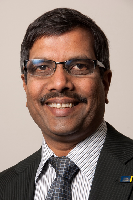
Xavier N. Fernando is a Professor in Ryerson University, Toronto, Canada where he is directing the Ryerson Communications Lab. He earned his PhD from the University of Calgary, Alberta in 2001 and joined Ryerson University in 2001. He has authored and co-authored close to 100 research articles and holds two patents. He is the author of the book, ‘Radio over Fiber for Wireless Communications - From Fundamentals to Advanced Topics’ Wiley, 2014. He is also a co-author of IEEE COMSOC WEBOK, the Wireless Engineering Body of Knowledge.
He is an IEEE COMSOC Distinguished Lecturer. He was a member in the IEEE COMSOC Education Board Working Group on Wireless Communications 2010-12. His work has won several awards and prizes including IEEE Humanitarian Initiative Technology workshop first prize in 2014, IEEE Microwave Theory and Techniques Society prize in 2010, Sarnoff Symposium prize in 2009, Opto-Canada best poster prize in 2003 and CCECE best paper prize in 2001. He has delivered invited lectures and tutorials worldwide. He is a program evaluator for ABET (USA). He is the General Chair for IEEE Canadian Conference on Electrical and Computer Engineering (CCECE) 2014. He was a member of Ryerson Board of Governors during 2010-2011 and the Chair of IEEE Toronto Section during 2012-13. He was a finalist for the Top 25 Immigrants of Canada Award in 2012.
Keynote Speaker 2: Prof. Abdulmotaleb El Saddik, the University of Ottawa
Tuesday - Nov 3, 2015: 2:30-3:30
Haptics: A Multimedia Perspective
Almost a century ago, many memories of a person were virtually lost as soon as the remembered person left the space and time of their loved ones. Only a few decades later, thanks to advances in audio and visual research and development, recording such memories finally became possible. Through the advances in multimedia technology such as photographic image technology and audio recordings, and much later, video cameras, and DVDs, we gained the ability to see into the past much better than our biological memories would allow. These media have facilitated the recovery of memories, and many of us now sometimes sit around the old pictures’ album (digital) to reflect and remember the nice memories we have of our loved ones. Would it not be exciting to be able to restore the smell, touch and hug of remembered ones whenever we desired their affection? Would it not be interesting to share and recall past memories of beloved ones by recording and later replaying their physical stimuli, along with their picture and audio recordings.
These ideas have triggered a new direction in research concerned with recording, storing, retrieving, and playing back haptic stimuli to bring our memories with far or lost loved ones; this is what we call haptic as a new media! Multimedia haptics involves integrating and coordinating the presentation of haptic and other types of media in the multimedia application. Generally, multimedia system consists of media acquisition or creation, content authoring, and transmission and consumption components. The potential of haptics as a new media is quite significant for many applications such as tele-presence, tele-learning, tele-medicine, tele-operation in hazardous environments, industrial design and testing, medicine, gaming, and any related interactive virtual reality application. In this talk, we will give an overview of haptic from a multimedia perspective, discuss some research issues, and address some challenges.
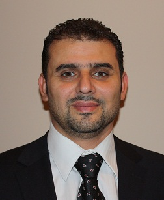
Abdulmotaleb El Saddik is Distinguished University Professor and University Research Chair in the School of Electrical Engineering and Computer Science at the University of Ottawa. He is the director of the Multimedia Communications Research Laboratory (MCRLab) and the Distributed & Collaborative Virtual Environments Research Laboratory (DISCOVER). He is Associate Editor of the ACM Transactions on Multimedia Computing, Communications and Applications (ACM TOMCCAP) and Guest Editor for several IEEE Transactions and Journals. Dr. El Saddik has been serving on several technical program committees of numerous IEEE and ACM events. He has been the General Chair and/or Technical Program Chair of more than 40 international conferences symposia and workshops on collaborative hapto-audio-visual environments, multimedia communications and instrumentation and measurement. He was the general co-chair of ACM MM 2008. He is leading researcher in haptics, service-oriented architectures, collaborative environments and ambient interactive media and communications (smart environments). He has authored and co-authored three books and more than 450 publications. He has received research grants and contracts totaling more than $18 million and has supervised more than 120 researchers.
Prof. El Saddik is a Fellow of the IEEE (2009), for his contributions to interactive haptic audio-visual systems. He was also elected Fellow of the Canadian Academy of Engineering (2010) and Fellow of the Engineering Institute of Canada (2010). He is the first Canadian in Computer Science & Engineering to receive the very prestigious Friedrich Wilhelm Bessel Award from the German Humboldt Foundation in 2007. He is the recipient of the Ontario Premier's Research Excellence Award (PREA), in 2004 and the National Capital Institute of Telecommunications (NCIT) New Professorship Incentive Award (2004). In 2008 he was appointed an IEEE Distinguished Lecturer, he also received the Professional of the Year Award, from the Canadian Lebanese Chamber of Commerce and Industry for Achievement in the Development of Canada. He has also received five Outstanding/Best Paper Awards. Dr. El Saddik is the recipient of the 2010 Association of Computing Machinery (ACM) Distinguished Scientist Award, the 2011 Cátedra de Excelencia from Universidad Carlos III de Madrid, Spain and the 2010 IEEE Instrumentation and Measurement Society Technical Award, which is the highest award of IEEE Instrumentation and Measurement society, for his outstanding contributions to multimedia computing. Most recently, he received the Faculty of Engineering’s George S. Glinski Award for Excellence in Research for 2012. He also received the 2012 IEEE Ottawa Educator Award and the 2013 IEEE Canada Achievement Award: C.C. Gotlieb (Computer) Medal for important contributions to the field of computer engineering and science.
Keynote Speaker 3: Eng. Ra'ed Hajarat, Oracle ECEMEA
Wednesday - Nov 4, 2015: 10:00-11:00
Digital Disruption
The Age of Digital Business
The technologies that have become a part of our everyday lives – like social, mobile and cloud – are now changing the way we do business. Digital business is about using any digital technology to promote, sell and enable enhanced and innovative products, services and experiences. These technologies have allowed organizations across the globe to create better customer experiences and deliver more efficient operations. They have also empowered them to consistently develop innovative business models that create new markets, or seriously disrupt existing ones.
What Impact Does Digital Have?
Businesses must find new ways of using the technology at hand at every level of the enterprise to add new value for the customer. Digital is currently transforming the business world in myriad ways. For instance, it’s changing decision-making processes by offering new levels of agility and allowing employees or managers to make decisions. This is forcing business leaders to learn to think like digital natives. After all, this demographic represents the future buyers and employees for most organizations, so successful organizations must become equipped with that instinct for how products should fit together in the digital age, and market them in a way that appeals to tech-savvy customers. The increase in the amount and importance of data is also having profound impact. Smart companies are democratizing data across their organization, allowing new audiences – who previously had little or no access to that data – to observe unnoticed patterns and opportunities and then exploit them.
Digital Disruption
Digital disruptors understand what digital natives want and offer new services, challenging traditional businesses of every size to digitally transform to survive. New technologies and business models can change the way companies deliver existing goods and services – or bring to market an innovation. For example: PayPal recently moved from the internet to the high street with PayPal Beacon – a hands-free mobile payment method that is currently driving new revenue from both retailers and existing customers. Bitcoin has reduced transaction costs to a point much lower than traditional payment cards, disrupting traditional payment systems and forcing several digital services to allow the new currency for micro-payments. Nike transformed its business from simply producing products to delivering engaging digital interactions before and after sale.
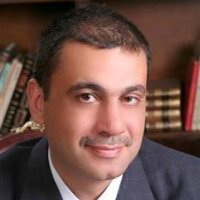
Ra’ed Hajarat, Jordan Managing Director & Technology Director – Oracle ECEMEA. Extensive ICT experience spanning more than 22 years, and a well-recognized track-record of leading and empowering large technology teams across multiple geographies towards achieving measurable business objectives, consistently. In-depth understanding of the full spectrum of ICT technologies and the different forces of digital disruption, directly working with executive leadership to progress the strategic thought process for achieving higher innovation, better customer relationship management, increased business insights, and improved operational efficiency. Active participation in public speaking forums, with extensive experience in addressing large audiences and managing constructive debates around emerging technologies and its applications in production environments. Strong advocate of corporate social responsibility, actively developing and promoting ICT initiatives in partnership with academia and non-profit organizations, where many such initiatives have had a direct social benefit as well as business benefit for my employers. Holder of a MBA degree from University of Strathclyde (UK) and a BSc degree in Electrical Engineering from University of Jordan.
Keynote Speaker 4: Prof. Jawad Faiz, University of Tehran
Wednesday - Nov 4, 2015: 2:30-3:30
Wind Energy Generation
Global wind power now accounts for 2% of the world’s electrical energy generation. Theoretically, it is estimated that about 40 times the current electrical energy can be generated by wind turbine with wind speeds of 6.9 m/s. This speech is aimed at presenting different aspects of the wind energy generation. A general survey of state-of-the art of wind energy generation is conducted first, highlighting the advantages and disadvantages of such systems. Followed is finding an appropriate answer to this question ″how these systems will affect the power distribution systems”. A portion of the answer must be obtained from the impact that they have on the power quality. In general, wind energy may be considered as a risky source in terms of power quality. There is a need in the world particularly in Middle East to move forward with necessary practical and policy decisions to utilize and deploy wind energy and its saving technology. As an example, using wind energy, establishing wind farms, introducing efficient policy and investing in this industry in Iran will be discussed.
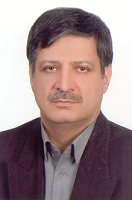
Jawad Faiz received the Ph.D. degree in Electrical Engineering from the University of Newcastle upon Tyne, England in 1988. He is now a Professor at School of Electrical and Computer Engineering, College of Engineering, University of Tehran. He is the author of 215 papers in international journals. He also has 210 international conference presentations, including papers on wind energy and wave energy conversion. Prof. Faiz is a Senior Member of IEEE, a member of Iran Academy of Sciences and Director of Center of Excellence on Applied Electromagnetic Systems. He received a number of international and national awards.
Keynote Speaker 5: Prof. M-A Al Jarrah, American University of Sharjah
Thursday - Nov 5, 2015: 10:00-11:00
Drones Challenges and Opportunities
The presentation will focus on the challenges and opportunities that face robotic aerial vehicles and their development and potential future of the civilian market of these vehicles. Regional development in both academic and industrial sectors will be discussed. Factors limiting the development of these systems in the region. Finally importance of fostering research and development of the related technologies.
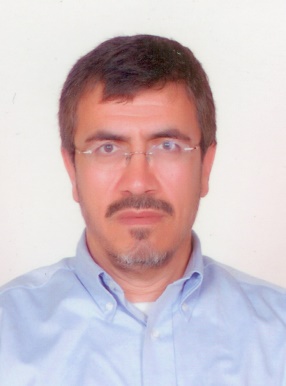
Mohammad-Amin AlJarrah earned a PhD in Aeronautics and Astronautics from the Stanford University, California, USA. He held academic positions at Jordan University of Science and Technology (1989-2003) and King Abdulaziz University (1999-2000). He moved to American University of Sharjah since august 2000 were he still is serving as a professor of Mechanical Engineering. Dr. Jarrah research interests are in dynamics, modeling, and control of complex systems, unmanned autonomous robotic systems, and applied unsteady aerodynamics and aerial vehicles design. He has been teaching numerous undergraduate and graduate courses in system dynamics, control systems, mechatronics system design, unmanned systems design, and advanced engineering mathematics. Dr. Jarrah pioneered Mechatronics education in the region. He founded the first MS program at AUS. He held the position of the founding director between the years 2001-2007. He then served as the mechanical engineering department head until fall 2012. In 2013, he founded MARSRobotics company in Jordan where he serves as the general manager of the company.
Program Booklet
The Final Conference Program is now available in the Program Booklet PDF. This booklet includes the detailed program, maps, and venue information.
Agenda
AEECT 2015 Program Outline
|
|
Auditorium |
|
Grand Ballroom 1 |
|
Grand Ballroom 2 |
|
Grand Ballroom 3 |
|
Time |
Grand Ballroom 1 |
Grand Ballroom 2 |
Grand Ballroom 3 |
|
|
Day 1: Tuesday - November 3, 2015 |
||||
|
08:30-18:00 |
Registration |
|||
|
09:30-10:00 |
Opening Ceremony in the Auditorium |
|||
|
10:00-10:30 |
Coffee Break |
|||
|
10:30-11:30 |
Keynote
Speech 1: Prof.
Xavier Fernando, Ryerson University Upcoming
Technologies for an Interconnected Society |
|||
|
11:30-13:30 |
Wireless & Optical Communications |
Smart Applications |
Modeling & Control |
|
|
13:30-14:30 |
Lunch in Al Saraya Restaurant |
|||
|
14:30-15:30 |
Keynote
Speech 2: Prof.
Abdulmotaleb El Saddik, the University of Ottawa Haptics: A
Multimedia Perspective |
|||
|
15:30-16:00 |
Coffee Break |
|||
|
16:00-18:00 |
Antenna Design |
Networking & Architecture |
OSNT |
|
|
Day 2: Wednesday – November 4, 2015 |
||||
|
09:30-17:30 |
Registration |
|||
|
09:30-10:30 |
Keynote
Speech 3: Eng.
Ra'ed Hajarat, Oracle ECEMEA Digital Disruption |
|||
|
10:30-11:00 |
Coffee Break |
|||
|
11:00-13:00 |
Electronics & Nanotechnology |
Cloud & Web |
Renewable & High Voltage |
|
|
13:00-14:00 |
Lunch in Al Saraya Restaurant |
|||
|
14:00-15:00 |
Keynote
Speech 4: Prof.
Jawad Faiz, University of Tehran Wind Energy
Generation |
|||
|
15:00-15:30 |
Coffee Break |
|||
|
15:30-17:30 |
Image & Signal Processing |
Algorithms & AI |
Unmanned Vehicles & Robotics |
|
|
18:30-20:30 |
Gala Dinner in Sunset Arena |
|||
|
Day 3: Thursday – November 5, 2015 |
||||
|
09:30-12:30 |
Registration |
|||
|
09:30-10:30 |
Keynote
Speech 5: Prof.
M-A Al Jarrah, American University of Sharjah Drones Challenges
and Opportunities |
|||
|
10:30-11:00 |
Coffee Break |
|||
|
11:00-12:30 |
Machines & Drives |
Education & Learning Methods |
Instrumentation |
|
|
12:30-13:30 |
Lunch in Al Saraya Restaurant |
|||
|
13:30-19:00 |
Tour Trip to Amman City |
|||

